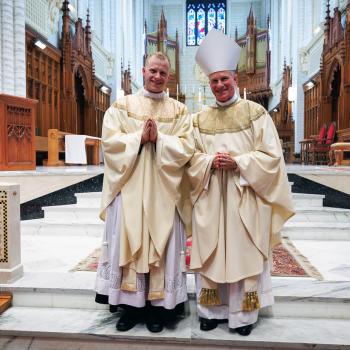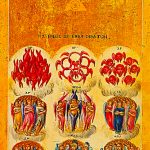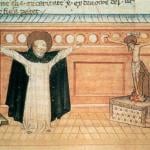Part of the reason I spent several years telling foolish “conservative” defenders of Bush’s “I will keep you safe if you just let me have insane amounts of unaccountable power” claims is that, as I noted before, what these defenders were defending were these propositions:
here’s a handy summary of those positions, as drawn from the Bush administration’s arguments in court, the Justice Department’s torture memos, and various public statements. Cheney believes that:
1. The president has total authority, subject to no review by any court, commission or anyone else, to decide to whom the Geneva Conventions — a treaty obligation of the United States — applies and in what circumstances.
2. The president has similarly total, unreviewable authority to arrest and detain anyone, for any period of time, on any grounds the president thinks may be in America’s national-security interest. He himself defines what counts as “security” and at how many removes from actual military operations the suspect in question may be. (Thus, for instance, if decides that criticism of himself is enough to cast suspicion on someone, he may have that person detained without the right to petition a court to review the grounds of his imprisonment.)
3. The president’s prisoners can include not just foreigners or those captured “on the battlefield” or while bearing arms, but anyone picked up anywhere, including U.S. citizens and/or people arrested within the borders of the United States.
4. Prisoners can also include teenagers as young as 14, based on claims of foreigners that they had some kind of terrorist involvement when they were as young as 11. (Actual case, I’m not making this up.)
5. While detained, prisoners can be held incommunicado and/or at secret locations and denied access to counsel.
6. They can also be subjected to treatments that the United States government itself has historically defined as torture. CIA agents or contractors who inflict such treatment should have total immunity from further investigation or prosecution in all cases, even if a prisoner dies as a result of it.
7. If any formal proceeding is ever brought against a prisoner, he may be subject to any penalty, including death, based on evidence he is not allowed to see or rebut, and/or based on statements extracted from him, or from someone else, under the treatment methods mentioned in #6.
8. Meanwhile, the president has unreviewable authority to order the wiretapping of anyone he deems a threat for any reason, without having to submit the order, even after the fact, to review even by the secret Foreign Intelligence Surveillance court. (Again, if the president decided that criticism of the president itself posed some kind of security threat, however indirectly, then he could order wiretapping on that basis, and no judge or court would have a right to know that he had even done it.)I’m probably forgetting a point or two, but these are all among the positions that Cheney and his cronies have taken and that the Bush administration defended at least for a time, until the Supreme Court finally started weighing in. We can save some time in future discussions like this one if we just start with these propositions and see who’s willing to defend them. As I said earlier, if you’re not willing to, then you actually disagree at least with Cheney and probably with Bush, because these have been their positions. And, also as I said earlier, if you defend these propositions you should do so in the full knowledge that “the president” referred to in them — and therefore the one who would now be in a position to use these powers as he sees fit — is not Bush, but one Barack Hussein Obama. Be sure you’re OK with that before you try to tell us how great Dick Cheney and his ideas about torture are.
Y’see, O Defender of “Give Bush Unaccountable Power So He Can Keep My Cowardly Skin Safe–and Accuse Anybody Who Opposes This of Saying ‘Bush is Hitler'”, the point was always: Bush was *not* Hitler. He was merely a short-sighted fool–like you. The problem is precisely that Bush was never going to be in power forever. Rather, he was going to leave office–and establish a precedent for others to follow.
And so *now*, all of a sudden, the people who were screaming to grant insane lawlessness to war criminals on the theory it would keep them safe are griping because the beneficiary of Bush’s “When the President wants to do whatever he should be free to do so” are suddenly having second thought about the whole “czar” idea. Golly! Who could possibly have foreseen *that*!
The Prophet Chesterton remarks on our tired democracy:
If there is one fact we really can prove, from the history that we really do know, it is that despotism can be a development, often a late development and very often indeed the end of societies that have been highly democratic. A despotism may almost be defined as a tired democracy. As fatigue falls on a community, the citizens are less inclined for that eternal vigilance which has truly been called the price of liberty; and they prefer to arm only one single sentinel to watch the city while they sleep.
That is the bargain we entered into after 9/11, when we accepted the preposterous proposition: “We are in an existential struggle for our very existence as a civilization!!!!! So…. go shopping and let us handle it.” Obama is just reaping where Bush sowed. Everybody believes Caesar’s omnipotent power will fix things and keep us all safe. The only difference is that Righties believe it will establish the Great Society in Afghanistan and Lefties think it will do it in the US.















